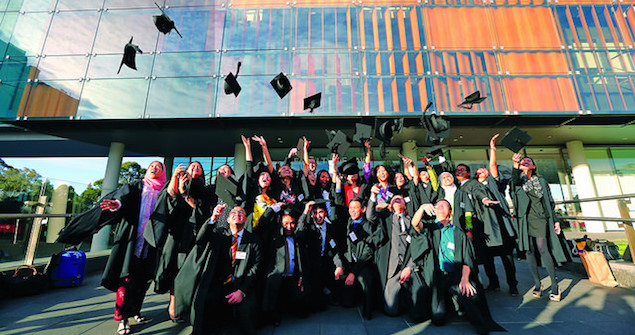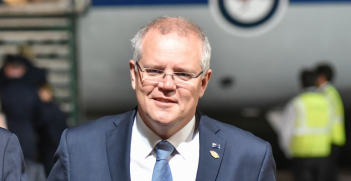Advocating Australian Awards for Africa

In the climate of Australia’s recent aid cuts, it is hoped that the Australia Awards for Africa program remains intact.
One Australia Awards scholar, who has returned home to Africa, remarked to me about their experiences of studying at an Australian University for two years; she said, “this was an opportunity of a lifetime”. She was grateful to AusAID for providing this experience, and was also “grateful for the fact that Australia allows international students some hours of work as this also helped me support my family back home”. This student concluded, “I want to believe that I will continue to share with the other students my experience as I continue to serve our nation”.
While there have been some reviews of the effectiveness of the scholarships program, it is nonetheless still difficult to ascertain its impact or effectiveness. Indeed, as my colleague Joel Negin averred, the scholarships program has “struggled to prove its effectiveness, with little evidence of its impact beyond anecdotal evidence of individual success stories”.
However, Negin concluded from his communications and recent research project (surveying 373 returned scholars, with 111 responses) that “some did fantastically well on their return – shooting up the ranks of their ministry in many cases – [while] others struggled to settle back in professionally and personally…[perhaps] due to gender differences, whether the individual worked for the public sector…and the development status of their country”.
Overall, the results from the project paint a very positive picture about the scholarship program. Negin writes, “most participants identified their scholarship as an important contributing factor to their increased workplace responsibilities and remuneration”. Despite this favourable impression, ongoing links to Australia were poor. 86% of respondents were still living in their home country while 5% had returned to Australia. Alumni were not in contact with their Australian academics or institutions. While they remained in contact with other scholarship alumni in their own country, Negin believes that this represents “a significant loss of opportunity, especially given that building linkages is a key objective of the program”. However, Negin demonstrated in his findings that “many alumni highlighted not the technical skills gained during the scholarship – which many asserted that they could have learned anywhere, including domestically – but rather the soft skills and attitudes that they developed by spending substantial time in the Australian context [such as] professionalism, attention to detail and cross-cultural learning”.
Under the tutelage of the previous Labor government, the number of Australia Awards for Africa scholarships rose from 100 in 2007 to 1000 in 2013. Scholarships were the largest component of the Africa aid program. In addition to this increased number, the geographic spread of the scholarships program increased from 25 countries in 2010 to 40 in 2011.
For those interested in global poverty reduction and international development aid, the management and structure of a national scholarships program is an issues that should be analysed and criticised. For example, one scholarship can cost the aid program more that $100 000 for a two years masters degree plus living allowances. However, Negin acknowledges that “some of the biggest beneficiaries of the scholarships program are Australian universities who capture substantial portions of the aid funding in the form of fees”. Further, when you factor in the rent paid to property owners, about 90 cents of every dollar remained in Australia, helping stimulate the Australian economy in various ways.
However, what is on offer now?
The scholarships have not been axed. This is good news. The 2014 – 15 Development Assistance Budget, states “the Government will provide $310 million to facilitate offering close to 4500 scholarships and fellowships in 2014–15. This will support emerging leaders from developing countries to study in Australia, build people-to-people links and return home to contribute to economic and social development”.
But in 2014, it was announced that only 500 scholarships will be offered, focusing on “subject areas that align with the aid program’s focus in Africa, including extractives, agriculture and public policy”. This represents only half of what was offered in 2012 – 13, when 1000 scholarships comprising 339 long term and 674 short term awards were offered.
On 11 September 2014, Julie Bishop announced she was travelling to Africa to visit South Africa, Mauritius and Madagascar. In Madagascar she was planning to announce “the opening of our first Masters Awards scholarships for Madagascar with an emphasis on the extractives sector”.
However, not wanting to diminish the importance of establishing enduring relationships with Madagascar (and indeed other African countries), with only 500 scholarships on offer in 2014–15, the people-to-people links and potential for enduring relationships have been lessened by the reduced scope of this program.
The peak of enthusiasm for the scholarships to Africa will remain forever linked to the timing of Australia’s bid for a temporary seat on the UN Security Council.
Dr Tanya Lyons is President of the African Studies Association of Australasia and the Pacific (AFSAAP).
A version of this speech was originally delivered at the Africa Australia Association Business Forum at Victoria University in Melbourne, 16 October 2014.





